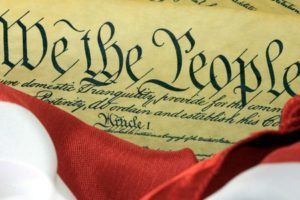 Second Amendment rights are a hot button issue in the United States. During this election season, they are certain to play a role in the presidential debates and campaigns. The most recent United States Supreme Court case on the firearms issue was District of Columbia v. Heller, decided on June 26, 2008.
Second Amendment rights are a hot button issue in the United States. During this election season, they are certain to play a role in the presidential debates and campaigns. The most recent United States Supreme Court case on the firearms issue was District of Columbia v. Heller, decided on June 26, 2008.
In Heller, the Supreme Court of the United States held unconstitutional a District of Columbia law banning handgun possession by making it a crime to carry an unregistered firearm and prohibiting the registration of handguns. The law at issue provides separately that no person may carry an unlicensed handgun, but authorizes the police chief to issue 1–year licenses; and requires residents to keep lawfully owned firearms unloaded and disassembled or bound by a trigger lock or similar device. Respondent Heller, a D.C. special policeman, applied to register a handgun he wished to keep at home, but the District refused. He filed this suit seeking, on Second Amendment grounds, to enjoin the city from enforcing the bar on handgun registration, the licensing requirement insofar as it prohibits carrying an unlicensed firearm in the home, and the trigger-lock requirement insofar as it prohibits the use of functional firearms in the home. A divided Unites States Supreme Court ruled as follows in a five to four decision.
The Second Amendment protects an individual right to possess a firearm unconnected with service in a militia, and to use that arm for traditionally lawful purposes, such as self-defense within the home. The Amendment’s prefatory clause announces a purpose, but does not limit or expand the scope of the second part, the operative clause. The operative clause’s text and history demonstrate that it connotes an individual right to keep and bear arms.
